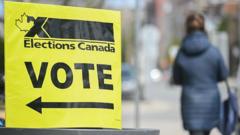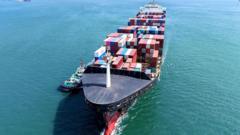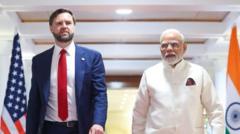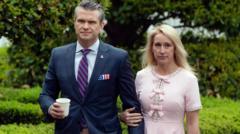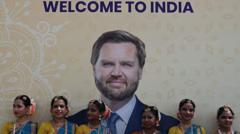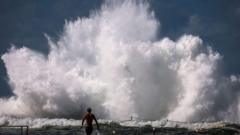In a surprising move, the United States has justified tariffs on the remote Heard and McDonald islands, prompting questions regarding the rationale behind targeting such uninhabited lands.
US Commerce Secretary Justifies Tariffs on Uninhabited Islands
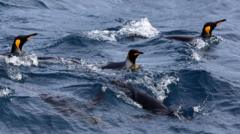
US Commerce Secretary Justifies Tariffs on Uninhabited Islands
US Government defends unusual tariff decisions on Heard and McDonald islands, home to wildlife.
In a recent interview, US Commerce Secretary Howard Lutnick defended the imposition of tariffs on the remote Heard and McDonald islands, which are known for housing only penguins and seals. The secretary remarked that these tariffs were introduced to close "ridiculous loopholes" and prevent foreign countries from using the islands as transit points for trade with the US. Lutnick addressed concerns during a segment aired by CBS, reiterating that the President is determined to fix any complicity that allows foreign entities to circumvent trade regulations.
The Australian government expressed confusion over the tariffs, with Trade Minister Don Farrell describing the situation as a "clearly a mistake," attributing it to a "rushed process." Lutnick, however, remained firm in his stance, suggesting that failure to include such territories in tariff regulations would allow nations to exploit these avenues to gain unfair trade advantages.
Pew Charitable Trusts highlighted the potential for manipulation in global trade through a practice called transshipment, which enables illegal activities. The trust revealed that substantial amounts of seafood are illegally traded in the Pacific through similar tactics, underscoring a need for diligence in monitoring imports.
Data from the World Bank reflects that while the islands have seen minor exports to the US over the years, a significant jump occurred in 2022, showing imports amounting to $1.4 million, primarily categorized as machinery and electrical products. The questionable inclusion of territories like the British Indian Ocean is also notable, as it houses mostly military personnel, with minimal trade activity.
As discussions surrounding the tariffs continue, stakeholders remain on high alert regarding the implications for wildlife and international trade frameworks.
The Australian government expressed confusion over the tariffs, with Trade Minister Don Farrell describing the situation as a "clearly a mistake," attributing it to a "rushed process." Lutnick, however, remained firm in his stance, suggesting that failure to include such territories in tariff regulations would allow nations to exploit these avenues to gain unfair trade advantages.
Pew Charitable Trusts highlighted the potential for manipulation in global trade through a practice called transshipment, which enables illegal activities. The trust revealed that substantial amounts of seafood are illegally traded in the Pacific through similar tactics, underscoring a need for diligence in monitoring imports.
Data from the World Bank reflects that while the islands have seen minor exports to the US over the years, a significant jump occurred in 2022, showing imports amounting to $1.4 million, primarily categorized as machinery and electrical products. The questionable inclusion of territories like the British Indian Ocean is also notable, as it houses mostly military personnel, with minimal trade activity.
As discussions surrounding the tariffs continue, stakeholders remain on high alert regarding the implications for wildlife and international trade frameworks.


